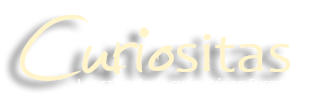Call for Papers
TREASURIES OF KNOWLEDGE: COLLECTING AND TRANSMITTING INFORMATION IN THE EARLY MODERN PERIOD
Cambridge, 8 April 2016
Early modern people understood collections of information as ‘treasuries’, both in a metaphorical and a material sense. Collecting and storing information created a useful cumulative repository for present and future reference. Moreover, collections were preserved in jewel houses or treasure rooms, their contents locked up in chests or boxes, thus reinforcing the idea that information was a valuable commodity to which access should be moderated. They were situated at the interface between past and future, particular documents and larger structures. They also raise questions of secrecy and access, value and materiality. In discussing treasuries, this one-day workshop directs the conversation towards both their utility and value, and their forms and location.
Collections of texts, data, or objects were designed to be storehouses of memory and repositories of information, and never to provide the kind of direct access to archives that historians take for granted today. The collections through which materials have been preserved were never static or neutral but rather constituted rich sites of intellectual and cultural inquiry; collections actively and intentionally preserved useful information and generated knowledge through their connections and structures. This approach poses the question of how to historicise early modern collectors’ practices on their own terms, exploring how they valued and used the repositories that historians use to document their world, rather than imposing our twenty-first-century concepts on the material.
Historians, literary scholars, curators, and archivists are increasingly attuned to the impact of past collecting and compiling practices. In their respective fields, and more or less independently from each other, scholars are starting to analyse the nature and structure of their overall source bases with the same level of critical analysis that has hitherto been given to the individual items that they contain. Yet the insights gained often have been confined to their separate fields of studies on either archives, or libraries, or museums, while this strand of research which runs through disciplines invites dialogue across boundaries. The encompassing category of ‘treasuries of knowledge’ challenges our pre-conceived typologies and provides a common forum for discussion and mutual inspiration.
This workshop provides a platform for further exchanges among the diverse scholars working on collecting, and invites scholars to reflect further on the common denominator of the utility of collections and the significance of their location and accessibility. To enable manageable conversations, each session will centre around a particular research theme which is currently shaping the field. As this is a topic driven by close attention to particular source bases, the panels will be based around a series of linked case studies. Together, our conversations will offer space to consider the ideals and practices that shaped the construction and use of collections in the past and the challenges and opportunities involved in preserving them for the future.
We invite proposals for twenty-minute papers and welcome all disciplines and every level of academic career. Deadline for submissions is 8 January 2016. To submit proposals or ask any further questions, contact us on treasuriescamb@gmail.com.
Organisers: Liesbeth Corens – Jennifer Bishop – Tom Hamilton


